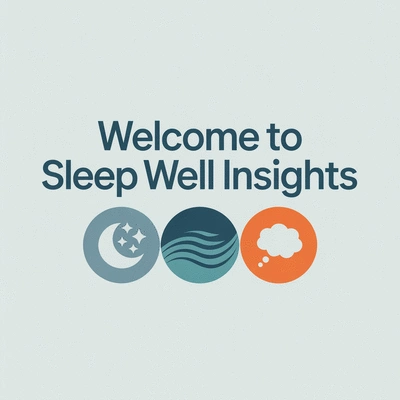Understanding how shift work and jet lag disrupt our sleep is crucial for improving our overall health and well-being. These factors affect our circadian rhythm, leading to various sleep challenges. Let’s explore the key insights from this enlightening discussion.
What You Will Learn
- Shift work and jet lag disrupt circadian rhythms, leading to sleep deprivation and fatigue.
- Different shift types (night, rotating, split) have unique impacts on sleep quality and can lead to sleep cycle variability.
- Alignment of circadian rhythms is crucial for achieving restorative sleep and maintaining mental health.
- Accumulating sleep debt increases the risk of insomnia and other health issues, highlighting the importance of managing sleep health.
- Recovery sleep is essential for restoring energy levels and improving cognitive function after periods of sleep loss.
- Understanding personal sleep challenges can help tailor effective strategies for better sleep and overall well-being.
The Interplay of Shift Work and Jet Lag on Sleep Health
This visual illustrates how shift work and jet lag disrupt the body's natural sleep-wake cycle, leading to sleep challenges and health risks.
Circadian Rhythm Disruption: Core Issues
Shift Work Impact
- Prolonged wakefulness
- Decreased sleep quality
- Chronic fatigue
Jet Lag Impact
- Confuses internal clock
- Difficulty resetting sleep
- Feelings of fatigue and irritability
Combined Effects: Amplified Sleep Issues
Both factors amplify sleep issues, making restorative sleep challenging and increasing risk for insomnia and other health problems like obesity, anxiety, and cardiovascular disease.
Shift Work & Sleep Cycle Variability
Night Shifts
Result in less restorative sleep, leading to chronic fatigue.
Rotating & Split Shifts
Confuse the body’s clock, making consistent sleep routines difficult and causing daytime sleepiness.
Benefits of Aligned Circadian Rhythms
Quality Sleep & Mood
Leads to deeper, more restorative sleep and enhances mood stability, reducing anxiety.
Cognitive Function & Energy
Positively impacts focus, decision-making, and restores energy levels to combat fatigue.
The Connection Between Shift Work, Jet Lag, and Sleep Disruption
Have you ever wondered why it’s so challenging to get a good night's sleep after a long flight or a night shift? The truth is, both shift work and jet lag can significantly disrupt our natural sleep patterns. Understanding these disruptions can empower us to find effective solutions for improving our sleep quality.
Many people, including my readers at Sleep Well Insights, have shared their struggles with adjusting to irregular schedules. Our biological clock, known as the circadian rhythm, plays a crucial role in regulating our sleep-wake cycles. Disruptions to this rhythm can lead to various sleep challenges, impacting not just our sleep but also our overall health.

Understanding Circadian Rhythm Disruption
Our bodies are wired to follow a natural rhythm, known as the circadian rhythm, which helps regulate our sleep and wake cycles. Unfortunately, both shift work and jet lag can throw this rhythm off balance. When we shift our sleep schedules or travel across time zones, our bodies may struggle to align with the new environment, leading to feelings of fatigue and irritability.
- Shift Work: Working at night or on rotating schedules can lead to prolonged periods of wakefulness.
- Jet Lag: Traveling across multiple time zones can confuse the body’s internal clock, making it hard to reset.
- Combined Effects: Both factors can amplify sleep issues, making it even more challenging to achieve restorative sleep.
Recognizing these factors is essential for anyone experiencing sleep disruptions. By understanding how our circadian rhythm is affected, we can take proactive steps to promote better sleep.
Shift Work and Sleep Cycle Variability
Different types of shifts can have varying effects on our sleep patterns. For example, night shifts often lead to decreased sleep quality due to misalignment with our natural circadian rhythms. This results in a phenomenon called sleep cycle variability, where sleep duration and quality fluctuate more than they would in a regular daytime schedule.
- Night Shifts: Often result in less restorative sleep, leading to chronic fatigue.
- Rotating Shifts: Can confuse the body’s clock, making it challenging to establish a consistent sleep routine.
- Split Shifts: May lead to excessive daytime sleepiness and difficulty sleeping at night.
Understanding how these shifts impact our sleep can help us better manage our sleep schedules in a way that promotes healthier sleep habits.
The Role of Circadian Rhythm in Sleep Quality
The alignment of our circadian rhythms is directly linked to our sleep quality and overall mental health. When our natural rhythms are disrupted, we may experience poor sleep quality, resulting in stressed or anxious feelings. At Sleep Well Insights, I often encourage readers to pay attention to their body’s signals and adjust their routines accordingly.
- Quality Sleep: A well-aligned circadian rhythm can lead to deeper, more restorative sleep.
- Mood Regulation: Improved sleep can enhance mood stability and reduce anxiety levels.
- Enhanced Cognitive Function: Quality sleep positively impacts focus and decision-making skills.
By prioritizing the alignment of our circadian rhythm, we can foster better sleep quality, leading to a more energized and productive life.
The Relationship Between Sleep Debt and Insomnia Risk
The accumulation of sleep debt can pose a significant risk for those engaged in shift work. Sleep debt refers to the difference between the amount of sleep needed and the amount actually received. This discrepancy can lead to various health issues, including increased risk for insomnia.
Understanding how sleep debt builds over time is crucial for managing sleep health effectively. By addressing this issue head-on, we can work towards reducing its impact on our overall well-being.
Pro Tip
Did you know? Establishing a consistent sleep schedule, even on your days off, can significantly improve your circadian rhythm alignment. Try going to bed and waking up at the same time every day, which can help reduce the impact of shift work and jet lag on your sleep quality.
Summarizing the Impacts of Shift Work and Jet Lag on Sleep Health
As we’ve explored throughout this article, the impacts of shift work and jet lag on sleep health are profound and multifaceted. It's vital to recognize that individuals experience these disruptions differently, influenced by factors such as their unique circadian rhythms and lifestyle choices. Understanding these variances can empower you to take control of your sleep health.
Moreover, the links between sleep disruption and increased health risks cannot be ignored. Research shows a clear connection between disrupted sleep cycles and conditions like obesity, anxiety, and even cardiovascular disease. Being aware of these implications is the first step towards making informed decisions that promote better sleep and overall well-being.
- Shift work can alter your biological clock, leading to sleep deprivation.
- Jet lag affects your ability to sleep soundly, impacting your daily functioning.
- Understanding your unique sleep challenges can help tailor effective strategies for improvement.
In summary, recognizing the serious impacts of shift work and jet lag on sleep health is crucial for fostering better sleep quality. With the right knowledge, you can navigate these challenges and optimize your sleep.
Frequently Asked Questions About Sleep Disruption
- Q: What is a circadian rhythm?
- A: The circadian rhythm is your body's natural internal clock that regulates your sleep-wake cycles and other biological processes over a 24-hour period.
- Q: How do shift work and jet lag affect my circadian rhythm?
- A: Both shift work and jet lag disrupt your circadian rhythm by forcing your body to sleep or wake at times that conflict with its natural cycle. Shift work can involve prolonged wakefulness or irregular sleep times, while jet lag directly confuses your internal clock due to rapid time zone changes.
- Q: What are the main types of shift work and their impact on sleep?
- A: The main types include night shifts, rotating shifts, and split shifts. Night shifts often lead to less restorative sleep and chronic fatigue. Rotating and split shifts confuse the body's clock, making consistent sleep routines difficult and causing daytime sleepiness and sleep cycle variability.
- Q: What is sleep debt and why is it problematic?
- A: Sleep debt is the difference between the amount of sleep your body needs and the amount it actually gets. Accumulating sleep debt can lead to chronic fatigue, decreased cognitive function, and an increased risk of health issues like insomnia, obesity, anxiety, and cardiovascular disease.
- Q: What is recovery sleep and why is it important?
- A: Recovery sleep is the restorative sleep you get after a period of sleep deprivation. It's crucial for replenishing energy levels, improving cognitive function, boosting mood, and mitigating many negative impacts of sleep loss.
- Q: How can I improve my sleep quality despite shift work or jet lag?
- A: Strategies include establishing a consistent sleep schedule (even on days off), creating a conducive sleep environment, understanding your unique sleep challenges, and prioritizing recovery sleep. Consulting with healthcare professionals for personalized guidance and utilizing resources from trusted organizations like the Harvard Medical School Division of Sleep Medicine can also be beneficial.
Taking Action for Better Sleep Quality
Now that we’ve uncovered the complexities of sleep disruption, it's time to take action! Implementing the practical strategies discussed can significantly enhance your sleep quality. If you’re feeling overwhelmed by sleep issues, don’t hesitate to reach out to a healthcare professional for personalized guidance.
Remember, improving your sleep isn't just about quantity; it’s about creating a nurturing sleep environment that allows you to thrive. Small changes can lead to big results, so I encourage you to experiment with the techniques we explored.

Further Resources and Support
To further your journey towards better sleep, consider utilizing resources from trusted organizations. Here are a couple of valuable links:
- American Academy of Sleep Medicine - They provide resources and guidelines for sleep health.
- Mayo Clinic - Offers extensive information on sleep disorders and tips for better sleep hygiene.
These resources can offer additional insights and support as you navigate your sleep challenges. Remember, you don’t have to go through this alone!
Exploring the Benefits of Recovery Sleep
Lastly, let’s talk about recovery sleep. This essential concept refers to the restorative sleep you can achieve after periods of sleep deprivation. By prioritizing recovery sleep, you can mitigate many of the negative impacts of sleep loss. It’s a chance to recharge your body and mind, leading to improved overall health.
Recovery sleep can help you:
- Restore energy levels to combat fatigue.
- Enhance cognitive function and decision-making.
- Boost your mood and emotional resilience.
By recognizing and valuing the importance of recovery sleep, you’ll be taking a significant step towards better sleep quality and overall well-being. Remember, at Sleep Well Insights, we're here to support you on your journey to restful nights and rejuvenated lives!
Recap of Key Points
Here is a quick recap of the important points discussed in the article:
- Shift Work and Jet Lag Disrupt Sleep: Both factors significantly impact our circadian rhythm, leading to sleep challenges.
- Circadian Rhythm Awareness: Understanding how your body's internal clock works can help in managing sleep better.
- Types of Shifts Matter: Night shifts, rotating shifts, and split shifts all have different effects on sleep quality.
- Sleep Debt Risks: Accumulated sleep debt increases the risk of insomnia and other health issues.
- Prioritize Recovery Sleep: Recovery sleep is crucial for replenishing energy and improving cognitive function.
- Utilize Resources: Seek guidance from trusted organizations for more insights on sleep health.









